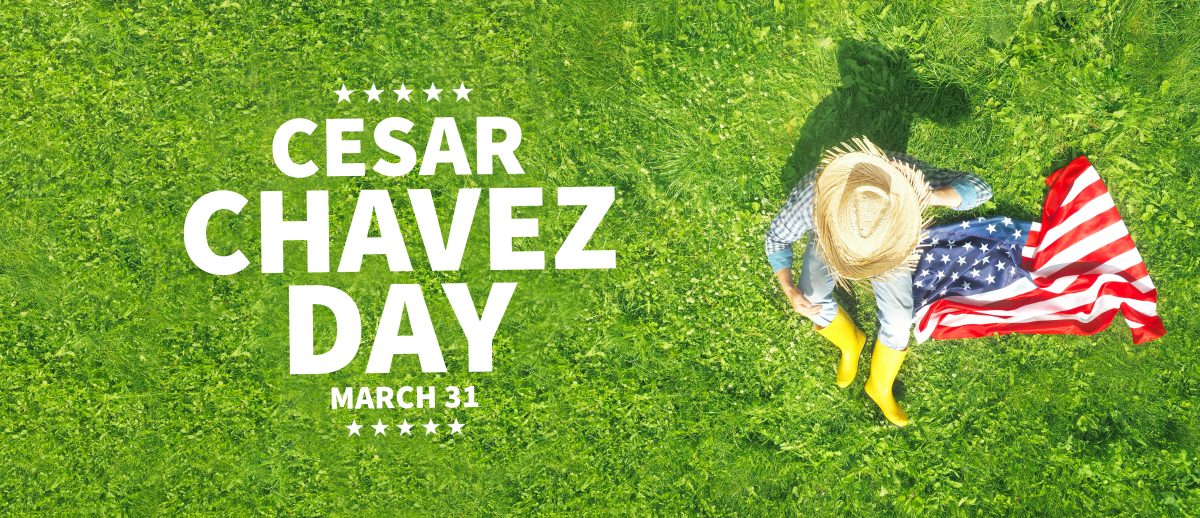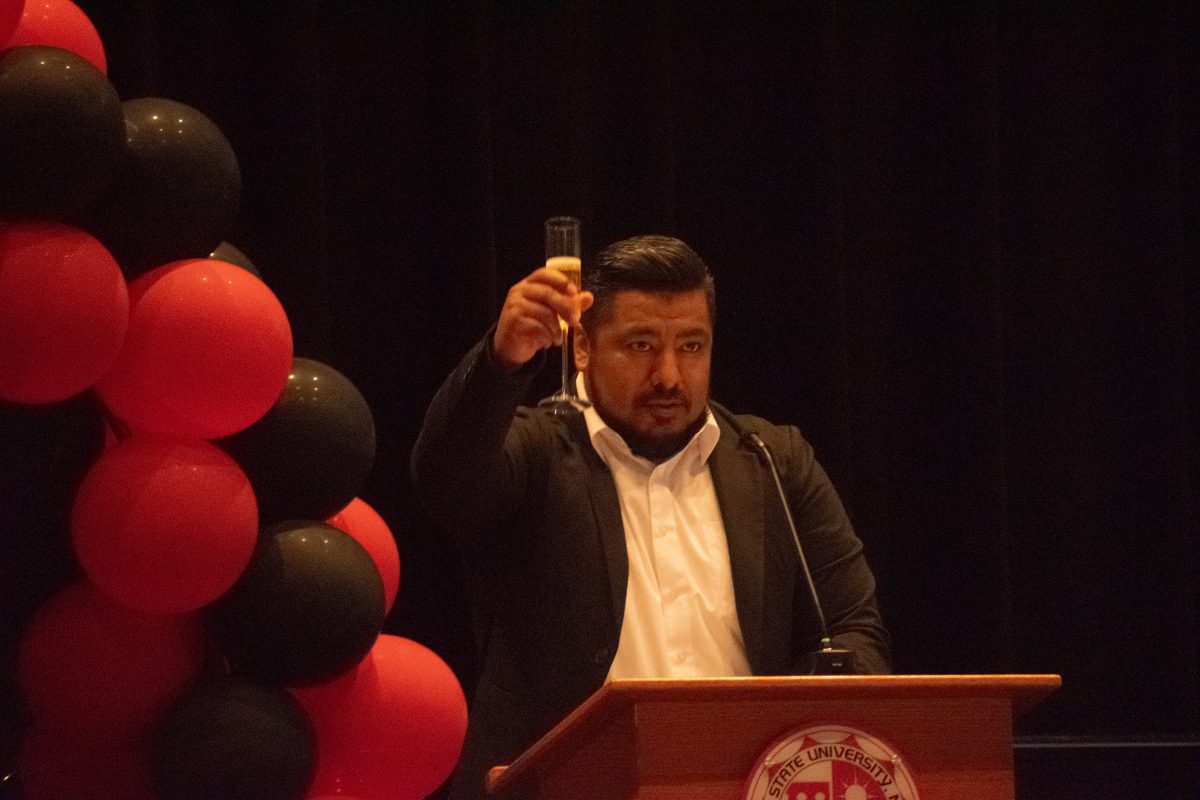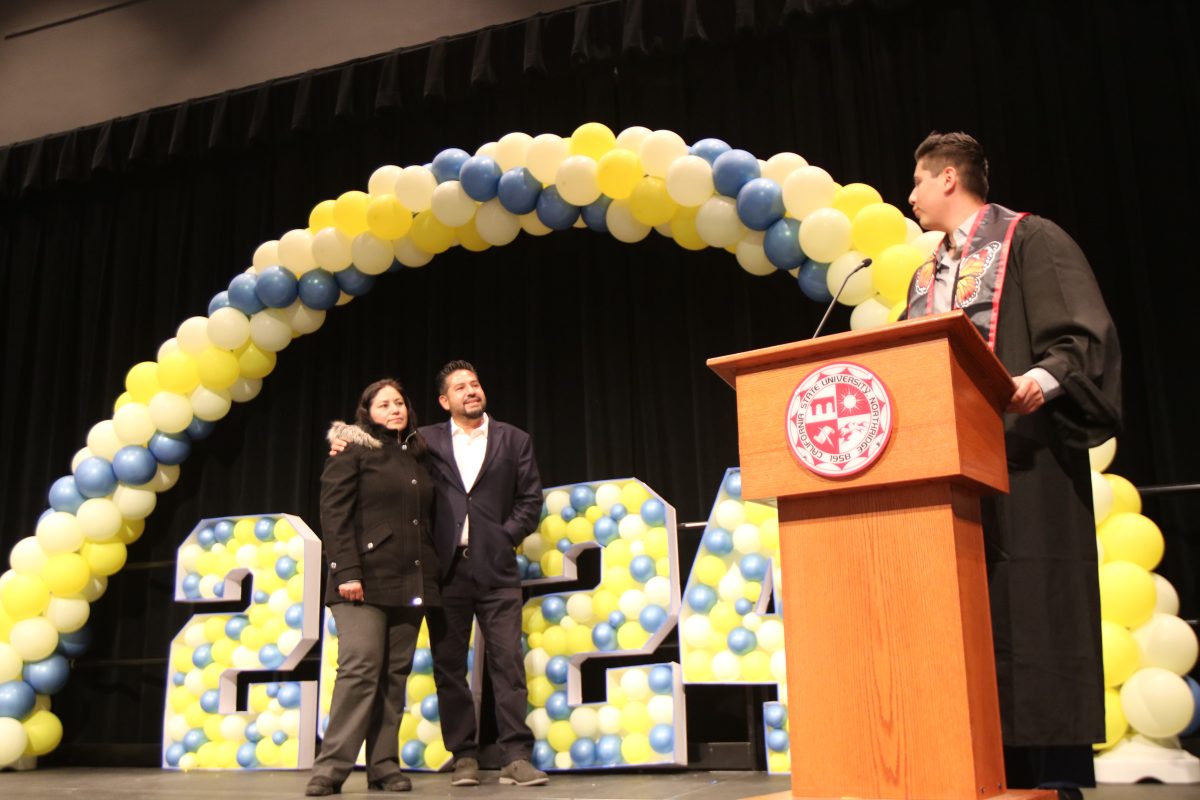On March 28, CSUN held its 15th annual Cesar Chavez Service Fair. Hosted by the Department of Chicano Studies, the event took place at the University Library Lawn. Many campus and nonprofit organizations participated in celebrating the life of the late civil rights leader.
Cesar Chavez was born on March 31, 1927, in Yuma, Arizona. During the Great Depression, his family moved to California. In California Chavez’s family worked in agriculture, where Chavez would also work as a child. Chavez later graduated from junior high in 1942.
After junior high, Chavez joined the Navy in 1944 but was honorably discharged in 1946. After leaving the Navy he returned to agricultural work in Delano, California. He then married Helen Fabela in 1948.
In 1962, Chavez created a union called the National Farm Workers Association (NFWA) with Dolores Huerta. Under the leadership of Chavez, the NFWA started to lead strikes in California for better working conditions.
In 1965 the NFWA and the Agricultural Workers Organizing Committee (AWOC) led a strike against California’s grape growers. Chavez was influenced by the non-violent practices of Mahatma Gandhi and Martin Luther King Jr.. During the strike, Chavez led a march from Delano to Sacramento and went through a 25-day hunger strike.
The strike ended in 1970.
After the strike, the organizations made an agreement with California grape growers to increase pay and allow workers to unionize. At that point, the NFWA and AWOC combined in 1966 to form the United Farm Workers of America (UFW).
The UFW turned their attention to Arizona in the 1970s. Chavez went on another hunger strike to protest Arizona worker laws. One of the laws prevented farm workers from protesting.
In the following decade, the UFW wanted to bring awareness to pesticide poisoning. This was Chavez’s third and last hunger strike. At the age of 61, Chavez led a hunger strike that lasted 36 days.
Chavez continued to fight for workers’ rights until his death at 66 years old. He passed away in his sleep on April 23, 1993. The following year, Bill Clinton awarded Chavez a Presidential Medal of Freedom. In 2014, Barack Obama declared Cesar Chavez Day a federal holiday on his birthday, March 31, to give people a day to celebrate his life.










